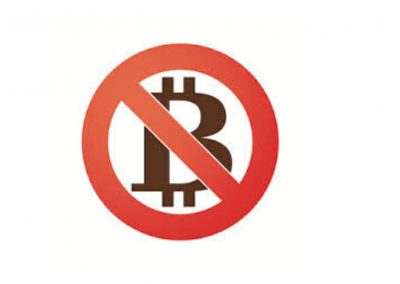When’s the last time you considered what kind of a trail you’re leaving behind online? It’s called your digital footprint, and it includes the emails you send, websites you visit, and everything you’ve ever typed into an online form.
The bigger your digital footprint, the easier it is to track you online. Search engines and other applications gobble up your data to send advertising your way. But additional tracking is done nefariously, with the intent of swiping your information for a host of illegal activities such as:
- Stealing your identity
- Hacking your financial accounts online
- Using your personal information to open up new accounts
Taking steps to minimize your digital footprint can allow you to escape unwanted attention and identity theft, while also protecting your data.
Passive vs. Active Digital Footprints
Your passive digital footprint is the data you leave behind without really trying. When you visit a website, it will likely record your IP address, which tells it what Internet Service Provider (ISP) you are using as well as where you are located (generally what city or what zip code). If you have a Google account, Google is likely keeping track of everything you search for as well.
Your active digital footprint contains things you are actively contributing to the Internet. Sending an email qualifies here since the messages sends your name to another person through an exchange. Every time you use Twitter, Instagram, Facebook, or any other social network, your digital footprint grows. Ditto when you post in a message forum or publish a blog.
The EU’s Big Step
The above conditions might all sound like ho-hum aspects of your daily life, but consider that the more information there is about you online, the easier you are to track, and not just for online crime. Personal data protection has become such a serious topic, that the countries of the European Union (EU) have taken a bold step towards data protection with the General Data Protection Regulation (GDPR), which came into effect in May 2018.
The GDPR puts the ball in the court of every EU citizen as to whether or not they will allow any website to use their personal information. It also stiffens the language of the law on how companies located outside the EU can use that same data. Furthermore, websites cannot collect data from anyone under the age of 16.
The GDPR is an excellent step in the right direction for data security, but it’s not going to stop cybercriminals from taking advantage of weak security or careless information leaks on your part. However, there are other ways to shrink your digital footprint, making it more difficult for others to track you online, giving you more protection against cybercrime.
The Perfect Nightmare
Your family has finished construction on a new house, the one you’ve always wanted to build. As the moving vans unload your flat screen TV, leather couches, and expensive artwork, the commotion is noticed by a local criminal who likes driving the streets of your new subdivision to research what houses might be good for a future job.
He writes down your address and punches it into the local property tax website. Now he has your full name. Proud of your new place, you take 50 photos of the new house, showcasing all your expensive furniture and gadgets, and post them to your Facebook account. Now the criminal has a perfect layout for your home and where all the fancy stuff is. Six months later, he notices your posts from your vacation in Aruba, showing everyone having fun in the sun and bragging that you still have another week on the Caribbean cruise.
When the alarm company calls you that there’s been a break-in, you’re staggered to find that despite the police getting there within 5 minutes, the burglars somehow knew exactly where all the electronics are and where you kept your best jewelry. After pawning your stuff, the criminal casually watches your Facebook feed as you share with others about the experience, talk about what security system to get next, show off your new stuff, and plan your next vacation.
How can you avoid situations like this? By following these four tips for shrinking your digital footprint.
Practice social media awareness
If you have social media pages still set to public, you’re doing yourself a huge disservice. On Facebook, you’re giving out your name, what you look like, who your friends and family are, your work address, your address, what your birthday is, your alma mater, and more. You’re also giving free access to everyone to track your movements as you check in at various places and read every post you make about where you’ve been and where you’re going.
Adjusting your privacy settings is an absolute must when you’re dealing with social media. Ensure that you’re only posting personal things to an audience that you trust 100%. Otherwise, you’re setting yourself up for failure. A second strategy is to use a variation of your real name when you sign up for your account. Going by your first and middle name rather than your first and last name will ensure an extra layer of privacy. People searching for your name online won’t be able to find you, but people who already know you will have no problem recognizing you.
Avoid public Wi-Fi networks
If you’re at Starbucks, the airport, or the library, you’ve probably seen an online notification warning you that this is a public network and that others can potentially see things you do. That’s not just a casual warning. There are ways to track someone else’s data on a public network so easily installed you can find them on YouTube.
So as you type in your bank account username and password, the person at the next table might be logging those keystrokes. Some hackers will also use public Wi-Fi areas to create their network with a name similar to the real system. When unsuspecting people log on to the phony network, all of their information passes right to the hacker’s computer before going on to the website of choice. The hacker picks and chooses from the data you’re sending for his personal use.
Use a private browser
Pretty much every primary Internet browser comes with the option of a private browser, designed to hide where you go on the Internet. For instance, Google Chrome tells you that when you use its “incognito” feature, it won’t save your browsing history, cookies, site data, or information entered into forms.
On the flip side, your activity still will be tracked by your ISP, any websites you visit, and your school or job if you’re browsing from one of those two places. If that’s not enough protection for you, consider ratcheting it up a bit to Epic or Tor as your browser of choice. Epic doesn’t just block cookies and other tracking elements; it celebrates how many it’s stopping during the process.
Tor can be a pain to install if you’re not extremely tech-savvy, but it is as close to true Internet privacy as you’re going to get without spending money. Tor works by using a series of proxies to reroute your requests all over the world before they reach the actual Internet. It can be a bit on the slow side, but that’s usually worth the cost of anonymity.
Invest in a Virtual Private Network (VPN)
Using a VPN for your web browsing is like entering your PIN number into a keypad with the New England Patriots’ starting offensive line standing behind you. Nobody’s going to be able to take a peek at what you’re doing. VPNs form a connection between your computer and a remote server located as close as around the corner or as far away as another country depending on your needs.
Any data you plan on sending to the Internet is encrypted and submitted to the remote server. Once at the server, it is decrypted and sent on to the website of choice, complete with a new IP address for you. The same happens in reverse. Anything you download from the Internet goes first to the remote server, where it is encrypted and then sent on to your computer to be decrypted and viewed by you.










